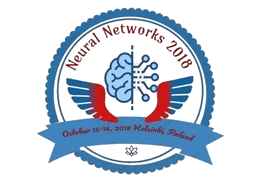
Patricio Julian Gerpe
Argentine AI Community, United Kingdom
Title: An Application of Agent-oriented Programming to connect Rural Merchants in Ethiopia with on-demand transportation
Biography
Biography: Patricio Julian Gerpe
Abstract
Statement of the Problem: Female rural merchants in Ethiopia lose at least 30% of their daily income due to inaccessibility of current on-demand transportation infrastructure. These losses are driven by (A) Time lost on waiting for transportation, (B) Constraints in the capacity they can carry, (C) Lack of access to most crowded markets. The purpose of this study is to assess the responsiveness of income for female rural merchants to the introduction of an agent-based computer program that connects them with the supply of on-demand transportation and finds an optimal fare. Specifically, the program is aimed to simulate the decision-making process behind the experience of going to markets to sell goods in Ethiopian markets. Methodology & Theoretical Orientation: Firstly, an ethnographic study was utilized during participant observation, in-depth interviews and focus groups to assess the current situation of the problem. Secondly, qualitative information from these interviews such as pain points and gain points of the experience to look for on-demand transportation was illustrated in a value proposition map, then scored, ranked and quantified based on interviews results to represent utility. Geolocalization data points were taken as inputs as well. The experience is tested twice with and without the application. Findings: The software application on average seemed to increase income for rural merchants in a range of 30%-50%. However, it is still premature to determine how likely is the intelligent-agent to affects merchants’ income. A much bigger subject sample and arrange of data points are still needed to determine the effectiveness of this application. Conclusion & Significance: The character of this research is preliminary
and necessary to further research on this topic. Part of this work will be open sourced to the scientific community, aiming to encourage the exploration of new applications of agent-based software in assisting high-risk communities to make smarter decisions.

